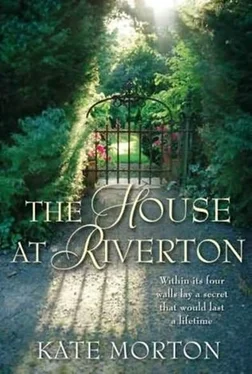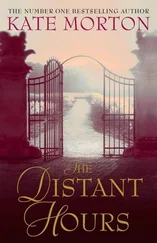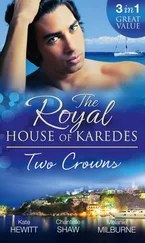With Helen’s assistance I was dried and dressed, powdered and processed, seated in the morning room by seven-thirty. I managed a piece of rubbery toast and a cup of tea before Ruth arrived to take me to church.
I am not overly religious. Indeed there have been times when all faith has deserted me, when I railed against a benevolent father who could allow such earthly horrors to beset his children. But I made my peace with God a long time ago. Age is the great mellower. Our relationship is easy now: we don’t speak often, but I know where to find him.
It is Lent, the period of soul-searching and repentance that always precedes Easter, and this morning the church pulpit was draped in purple. The sermon was pleasant enough, its subject guilt and forgiveness. (Fitting when one considers the endeavour I have decided to undertake.) The minister read from John 14, beseeching the congregation to resist the scaremongers who preach Millennial doom and to find instead an inner peace through Christ. ‘I am the way, the truth and the life,’ he read, ‘no man cometh unto the Father but by me.’ And then he bid us take our example from the faith of Christ’s Apostles at the dawn of the first millennium. With the exception of Judas, of course: there is not much to recommend itself in the traitor who betrayed Christ for thirty pieces of silver then hanged himself.
It is our habit, after church, to walk the short distance to the High Street for morning tea at Maggie’s. We always go to Maggie’s, though Maggie herself left town with a suitcase and her best friend’s husband many years ago. This morning, as we ambled down the gentle slope of Church Street, Ruth’s hand on my arm, I noticed the first eager buds emerging on the brambly hedgerows that line the path. The wheel has turned again and spring is on its way.
We rested for a moment on the timber seat beneath the hundred-year Elm whose mammoth trunk forms the junction of Church and Saffron High streets. The wintry sun flickered through the lacework of naked branches, thawing my back. Strange these clear, bright days in winter’s tail, when one can be hot and cold all at once.
When I was a girl, horses and carriages and hansom cabs rolled along these streets. Motor cars too, after the war: Austens and Tin Lizzies, with their goggle-eyed drivers and honking horns. The roads were dusty then, full of potholes and horse manure. Old ladies pushed spoke-wheeled perambulators and little boys with empty eyes sold newspapers out of boxes.
The salt seller always set up on the corner, where the petrol station is now. Vera Pipp: a wiry figure in a cloth cap, thin clay pipe permanently hanging off her lip. I used to hide behind Mother’s skirt, watching bug-eyed as Mrs Pipp used a big hook to heave slabs of salt onto her handcart, then a saw and knife to carve them into smaller pieces. She turned up in many a nightmare, with her clay pipe and shiny hook.
Across the street was the pawnbroker’s store, three telltale brass balls out front, same as every town across Britain at the dawn of the century. Mother and I visited every Monday to exchange our Sunday best for a few shillings. On Friday, when the mending money came through from the dress shop, she would send me back to collect the clothes, that we might have something to wear to church.
The grocer’s store was my favourite. It’s a photocopy place now-the last grocer shut up shop a decade or two ago when the supermarket was built out on Bridge Road. Back in my time it was run by a tall thin man with a thick accent and thicker eyebrows and his roly-poly wife, who made it their business to fill customers’ requests, no matter how unusual. Even during the war Mr Georgias was always able to find an extra packet of tea-for the right price. To my young eyes, the store was a wonderland. I used to peer through the window, drinking in the bright boxes of Horlicks malt powder and Huntley & Palmer ginger biscuits. Luxuries the likes of which we never had at home. On wide, smooth counters sat yellow blocks of butter and cheese, boxes of fresh eggs-still warm, sometimes-and dried beans, measured out on brass scales. Some days-the best days-Mother would bring a pot from home, which Mr Georgias would spoon full of black treacle…
Ruth tapped my arm and hoisted me to my feet and we set off again down Saffron High Street toward the faded red-and-white awning of Maggie’s. The scratchy blackboard menu boasted its customary array of ill-assorted modern fare-cappuccino grandes, Cajun chicken burgers, sun-dried-tomato pizzas-but we ordered the usual, two cups of English breakfast tea and a scone to share, and sat at the table by the window.
The girl who brought our order was new, both to Maggie’s and to waitressing I suspect, judging by the awkward way she clutched a saucer in each hand and balanced the scone plate on a trembling wrist.
Ruth looked on disapprovingly, raising her eyebrows at the inevitable pools of tea on the saucers. She was mercifully restrained, however, remaining tight-lipped as she planted paper napkins between our cups and saucers to soak up the spills.
We sipped in habitual silence until finally Ruth slid her plate across the table. ‘You have my half as well. You’re looking thin.’
I considered reminding her of Mrs Simpson’s advice, that a woman can never be too rich or too thin, but thought better of it. Her sense of humour, never abundant, has all but deserted her of late.
I am looking thin. My appetite has abandoned me. It is not that I don’t hunger so much as I don’t taste. And when one’s last brave tastebud curls up and dies, so does any lingering inducement to eat. It is ironic. After striving hopelessly in my youth to affect the fashionable ideal-thin arms, small breasts, no blood-it is now my lot. I am under no misapprehension, however, that it suits me as well as it did Coco Chanel.
Ruth dabbed at her mouth, chasing an invisible crumb across her lips, then cleared her throat, folding the napkin in half and in half again, and tucking it under her knife. ‘I need a prescription filled at the pharmacy,’ she said. ‘Are you happy to sit?’
‘A prescription?’ I said. ‘Why? What’s the matter?’ She is in her sixties, the mother of a grown man, and still my heart skips.
‘Nothing,’ she said. ‘Not really.’ She stood stiffly then said in a low voice, ‘Just a little something to help me sleep.’
I nod; we both know why she doesn’t sleep. It sits between us, a shared sadness tied up neatly by our unspoken agreement not to discuss it. Or him.
Ruth rushed on, filling the silence. ‘You stay here while I dash across. It’s warm with the heating on.’ She gathered her handbag and coat and stood, considering me for a second. ‘Don’t you go wandering now, will you?’
I shook my head as she hurried to the door. It is Ruth’s abiding fear that I will disappear if left alone. I wonder where it is she imagines I am so eager to go.
Through the window I watched until she vanished amid the people rushing past. All different shapes and sizes. And colours, too, these days, even here in Saffron. What would Mrs Townsend have said?
A pink-cheeked child wandered by, rugged up like a blimp, dragging behind a busy parent. The child-he or she, it was difficult to tell-regarded me with large round eyes, burdened by none of the social compulsion to smile that afflicts most adults. Memory flashed. I was that child once, long ago, lagging behind my own mother as she hurried along the street. The memory brightened. We had walked by this very shop, although it hadn’t been a cafe then but a butcher’s. Ranks of cut meat on white marble slabs lined the window and beef carcases swayed over the sawdust-strewn floor. Mr Hobbins, the butcher, had waved at me, and I remembered wishing Mother would stop, that we would take home with us a lovely ham hock to turn into soup.
Читать дальше












